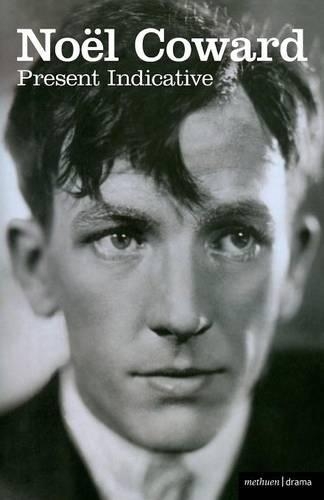
Present Indicative: The First Autobiography of Nol Coward
(Paperback, New Edition - New ed)
Publishing Details
Present Indicative: The First Autobiography of Nol Coward
By (Author) Nol Coward
Bloomsbury Publishing PLC
Methuen Drama
1st August 2006
New Edition - New ed
United Kingdom
Classifications
General
Non Fiction
Autobiography: general
792.092
Physical Properties
Paperback
352
Width 129mm, Height 198mm, Spine 22mm
382g
Description
"I was photographed naked on a cushion very early in life, an insane, toothless smile slitting my face and pleats of fat overlapping me like an ill-fitting overcoat. Later, at the age of two, I was photographed again. This time in a lace dress, leaning against a garden roller and laughing hysterically. If these photographs can be found they will adorn this book."
Thus begins the life story of one of the most celebrated characters in British theatrical history, in the first of Coward's autobiographies, first published in 1937. Displaying an early dedication to the theatre, Present Indicative hints at the success that would come to Coward as actor, playwright, novelist and performer. Each line is punctuated with his trademark effervescent wit, making this book a comic tour de force in it's own right, as well as a "must read" for anyone with an interest in the British stage.
"He is simply a phenomenon, and one that is unlikely to occur ever again in theatre history" Terence Rattigan
Reviews
"He is simply a phenomenon, and one that is unlikely to occur ever again in theatre history." --Terence Rattigan
Author Bio
Nol Coward was born in 1899 in Teddington, Middlesex. He made his name as a playwright with The Vortex (1924), in which he also appeared. His numerous other successful plays included Fallen Angels (1925), Hay Fever (1925), Private Lives (1933), Design for Living (1933) and Blithe Spirit (1941). During the war he wrote screenplays such as Brief Encounter (1944) and In Which We Serve (1942). In the fifties he began a new career as a cabaret entertainer. He published volumes of verse and a novel (Pomp and Circumstance, 1960), two volumes of autobiography and four volumes of short stories: To Step Aside (1939), Star Quality (1951), Pretty Polly Barlow (1964) and Bon Voyage (1967). He was knighted in 1970 and died three years later in Jamaica.
